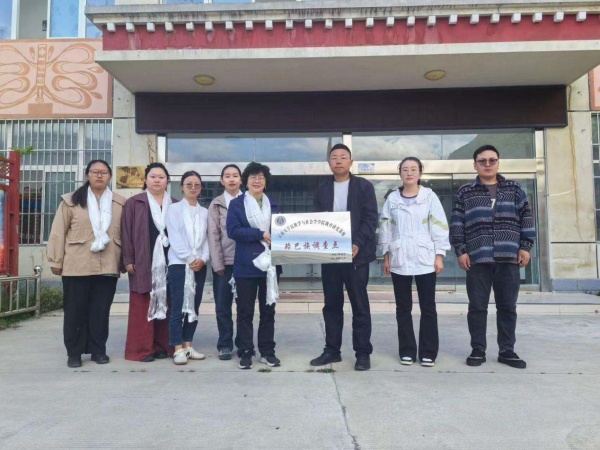YNU conducts research at Lhoba township in Xizang region
The inauguration ceremony for the Lhoba Research Site of the Yunnan University Ethnology and Sociology School Research Base was held on Aug 3 at the Neyul Lhoba ethnic township – situated in Southwest China's Xizang autonomous region.

The Lhoba research facility is unveiled on Aug 3. [Photo/ynu.edu.cn]
It originated from the research paper called the Study of 56 Ethnic Groups, conducted in 2003 under the auspices of Yunnan University, or YNU – located in Kunming, capital of Southwest China's Yunnan province.
At the time, Qionglin village in Neyul Lhoba ethnic township was selected as the research site for the Lhoba ethnic group.
That's when a research team of six, jointly formed by YNU and Tibet University, undertook research in Qionglin village.
To do so, the team interviewed representatives of various social brackets among the 157 villagers in Qionglin.
The research covered topics such as historical evolution, ecology and environment – as well as population, business, literature and art, lifestyle, marriage and family, customs, social structure and education.
The findings were compiled into the book Lhoba: Research on Qionglin Village, Mainling County, Xizang.
Currently, the School of Ethnology and Sociology of Yunnan University is conducting research in three villages administered by the Neyul Lhoba ethnic township.
The undertaking is focusing on topics such as the effective connection between poverty alleviation and rural revitalization, as well as ethnic exchanges and it will produce a series of research outcomes.
All rights reserved. Presented by China Daily. 滇ICP备12004993号-2








